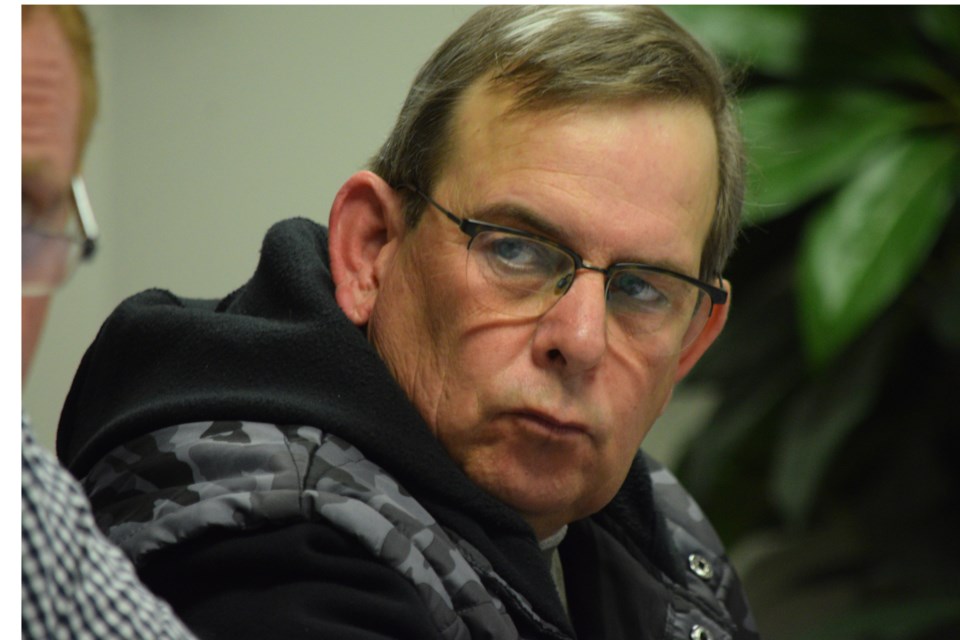WOODLANDS COUNTY-The loss of about 60 jobs from the Swan Hills Treatment Centre will have an impact beyond Swan Hills.
That is what Woodlands County Fort Assiniboine/Timeu councillor Dale Kluin told the Barrhead Leader after we reached out to Kluin to elaborate on comments he made about the layoffs at the Sept. 15 council meeting and to ask him what the loss would mean to his constituents.
Like Swan Hills, the Hamlet of Fort Assiniboine's economy has been hurt by the losses in the oil and gas company and the forest industry. In May, Trident Exploration shuttered its operations, and the community was also affected by the closure of Timeu Forest Products in 2018.
Kluin said the latest job losses from the Swan Hills Treatment Centre will have a ripple effect in the region, adding while he did not know how many people in Fort Assiniboine are employed by the hazardous waste treatment facility. There are several who owe their livelihoods directly or indirectly to the facility.
He added the layoffs, which come into effect Dec. 31, have impacted his own family. Kluin's son was one of the 60 people who received layoff notices.
Ironically, just the week prior, the pair were speaking about how they felt his son's job was safe and it would not be impacted by the cost-saving and cuts the United Conservative Party (UCP) government are making.
"He called me up on Friday [Sept. 11] and said ‘We were wrong, Dad,’ Kluin said.
However, at the council meeting, he said the layoffs did not make sense.
“They’re busier than they’ve ever been before,” Kluin said.
He believes part of the reason behind the layoffs is that the government is making changes to rules that will impact what the plant can accept.
Kluin added if this is true, the result of the rule change is that "rural Alberta’s getting kicked in the butt again.”
The problem, Kluin said, is that the waste still has to be disposed of and if it isn't being done at the Swan Hills incinerator, then where is it going?
Kluin said the question one has to ask now is where are those people going to find employment.
"Swan Hills has to be one of the hardest-hit communities because of the downturn of the oil and gas sector. There are no other jobs up there," he said, noting the two largest communities to Swan Hills are Whitecourt and Barrhead both which have their economic challenges.
Kluin said that even if people could find employment, it would be difficult for many people to leave because of the housing situation, most notably because they own their own homes and could not afford to leave until they are sold.
Kluin is also frustrated with the lack of communication from not only Suez, the company that manages the facility, but also the government, who has yet to communicate the reason for the closures.
He added he is also dissatisfied with the government's relative inaction to deal with rural municipalities concerns.
"We in rural Alberta were the ones that supported them," Kluin said. jobs. "They keep talking about job creation and the need to keep the economy going, but they are the ones [directly or indirectly] laying off more people than any other entity."
Kluin added that he will coordinate with Swan Hills mayor Craig Wilson in his efforts to lobby the province to do what they can to mitigate the layoffs.
Government response
United Conservative Party (UCP) Athabasca-Barrhead-Westlock MLA Glenn van Dijken said the decision to downscale the facility was a difficult one for Alberta Infrastructure, but an inevitable one.
Although the hazardous treatment plant is managed by Suez, a private company, it is overseen by Alberta Infrastructure, and it is the department that ultimately made the decision to downsize the facility's workforce.
van Dijken said one of the reasons why the Alberta Infrastructure decided to downsize the plant's workforce, is partly because the plant has largely fulfilled its mandate.
"When the plant was built, it was largely driven by the federal government's requirement for the safe disposal of polychlorinated biphenyls or PCBs," he said. "And while the federal mandate still exists, their supply has been reduced significantly."
Although the plant has been actively looking for alternative revenue streams, the cost of doing so has been prohibitive.
van Dijken also voiced his frustration with the federal government.
He said the province has been subsidizing the plant since its inception to the tune of about $30 million annually.
"The federal government has had this [PCB] mandate and Alberta has been carrying the load," he said. "It is the only plant in Canada to take these PCBs and dispose of them safely, but [federal government] has never assisted in offsetting any of the costs."
van Dijken said without federal help, given the province's financial situation, Alberta Infrastructure made the difficult decision to lower the subsidy to the plant, which in turn caused the reduction in the plant's workforce.
He added he has been in touch with Alberta Labour Minister Jason Copping to see what programs that are available to help the dispelled workers.
van Dijken said knowing that the plant's life expentancy might come to an end once the federally mandated PCB disposal runs its course (federal law mandates that all PCBs be destroyed by 2025) the province has been working with the municipality and other stakeholders to find other industries and employment for the area.
"There has been some work with geothermal, for instance, to make use of the infrastructure that is already up there, but unfortunately nothing has come to fruition," he said. "It is not an easy time, I sympathize with the individuals and families that are impacted and that we are doing our best to mitigate the impact."
with files from Kevin Berger



